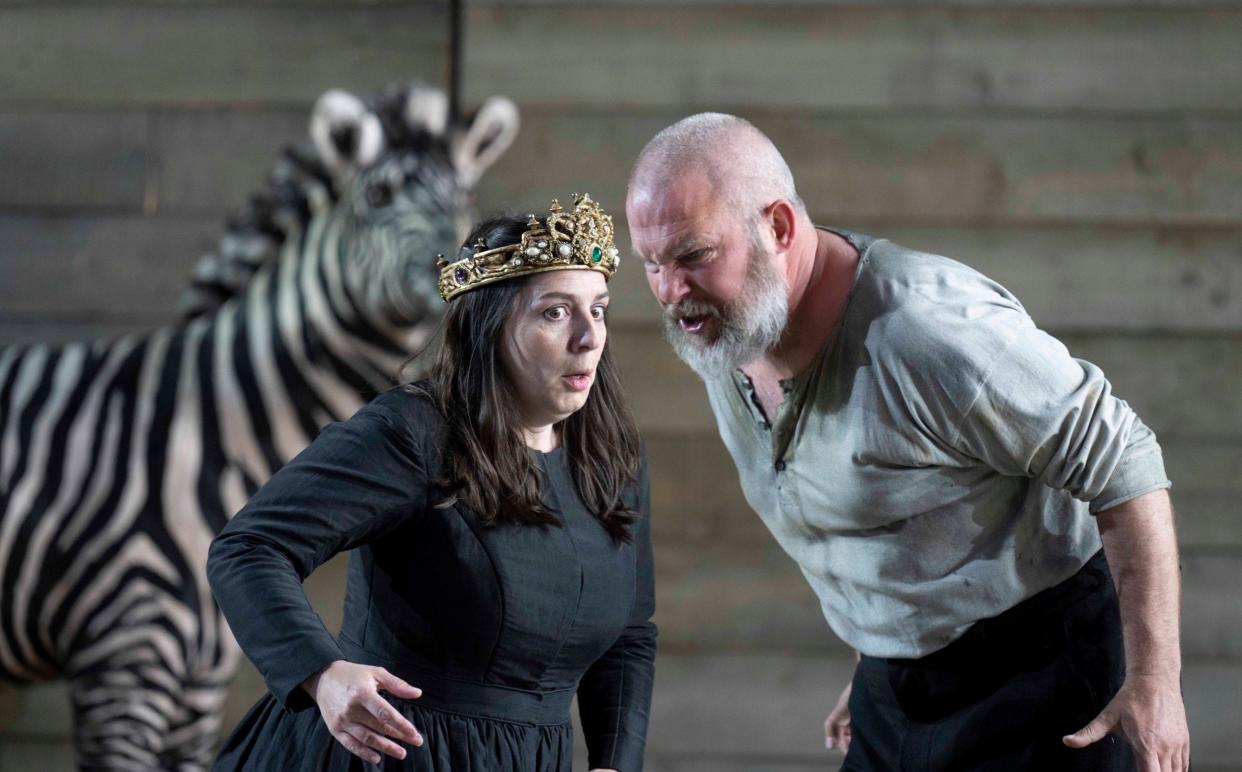Mitridate, re di Ponto: a superb staging of the opera Mozart wrote when he was 14

Postponed by the pandemic, the new Garsington Opera production of Mozart’s Mitridate, re di Ponto has been worth the wait and is in many respects a magnificent evening. It had originally been scheduled for 2020, and, although operatic planning is still in recovery, that delay is nothing compared with the two centuries that separate the work’s premiere in Milan at Christmas 1770 and its first revival at Salzburg in 1971.
In this precocious awakening of his operatic genius, the 14-year-old Mozart inherits the old formulae of opera seria and signals what a great dramatic composer he would become. Inevitably, not everything is on the level of Sifare’s stunning aria with horn obbligato, “Lungi da te”, but potential longueurs are avoided here due to substantial cuts. Like Le nozze di Figaro, this early opera is based on a great play, in this instance Racine’s tragedy Mithridate.
Set at the ancient court of King Mithridates, the first-century-BC ruler of Pontus who expanded his Black Sea kingdom north to include today’s Crimea, the story tells of conflicts between love and filial duty. Both of Mitridate’s sons – the self-sacrificing Sifare and the ruthless, duplicitous Farnace – take advantage of their father’s absence at war and rumour of his death to become infatuated with Mitridate’sown betrothed, Aspasia.
In designs by Hannah Clark, Tim Albery’s production is timeless. The stage is little more than high-walled wooden box, yet it gives the characters room to breathe and the audience an opportunity to ponder those objects scattered around – furniture worthy of a design museum plus a classical bust, antique globe, stuffed zebra and miniature toy helicopter. Albery fills the space with direction of psychological intensity.
Mozart’s music already evokes this turmoil of the heart, and the conductor Clemens Schuldt delivers buoyant and bracing accompaniments from The English Concert. Robert Murray’s Mitridate, who enters dishevelled in a trench coat and dragging a huge trunk, embraces the fearsomely demanding vocal lines, his tenor’s ringing top and burnished tone conveying the character’s increasing paranoia.
First seen in mourning for Mitridate, all the others wear black except for Farnace, lounging around in purple pyjamas; the countertenor Iestyn Davies relishes his opportunities as the playboy prince and projects sculpted lines with glowing tone. Louise Kemény’s Sifare is fresh and focused, holding the stage in that duet with the splendid horn of Ursula Paludan Monberg. Elizabeth Watts brings pearly tone and coloratura attack to Aspasia, and Soraya Mafi is bright as the younger princess Ismene. As Arbate, Mitridate’s counsellor left helpless and horrified by what he sees at court, John Graham-Hall supplies a study in stillness.
Until July 2; garsingtonopera.org


